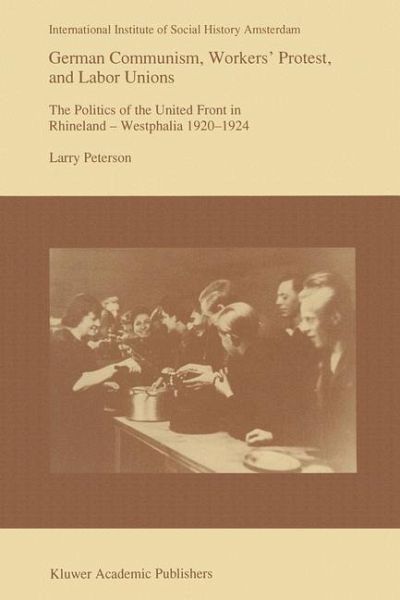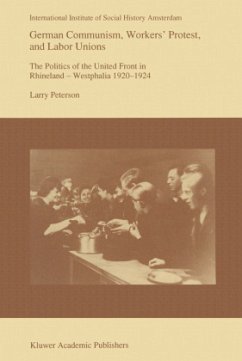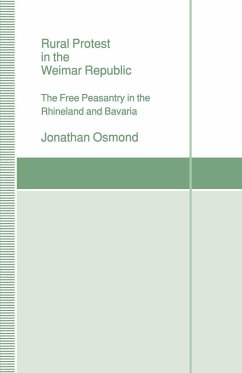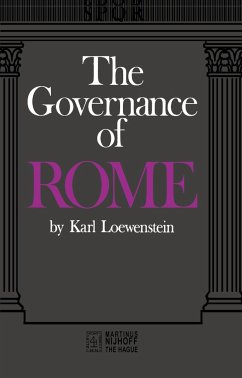
German Communism, Workers' Protest, and Labor Unions
The Politics of the United Front in Rhineland-Westphalia 1920-1924
Versandkostenfrei!
Versandfertig in 1-2 Wochen
229,99 €
inkl. MwSt.
Weitere Ausgaben:

PAYBACK Punkte
115 °P sammeln!
This book analyzes how a sizable group of Gennan workers came to support Communism and how they in turn influenced the emergence and development of the German Communist Party (KPD) in its fonnative period as a mass party. It reconstructs the interaction between a party and the constituency to which it appealed within the constraints and opportunities set by social structures, econo mic conditions, and political competitors. This interaction revolved around the elaboration and implementation of a specific concept of revolutionary politics, and this study investigates both the rise of the KPD as...
This book analyzes how a sizable group of Gennan workers came to support Communism and how they in turn influenced the emergence and development of the German Communist Party (KPD) in its fonnative period as a mass party. It reconstructs the interaction between a party and the constituency to which it appealed within the constraints and opportunities set by social structures, econo mic conditions, and political competitors. This interaction revolved around the elaboration and implementation of a specific concept of revolutionary politics, and this study investigates both the rise of the KPD as a mass party and its failure to set off a socialist revolution in the early 1920s in light of the contradictory ways German workers responded to its revolutionary strategy. When I began to study the KPD in the mid 1970s, scholarly works in the West portrayed a party so out of touch with the realities of German life from 1918 to 1933 that its history was a litany of political mistakes that led from crisis to catastrophe. The KPD was dominated by the foreign policy interests of the Soviet Union, by factional disputes and personal rivalries among the leadership, by an authoritarian, centralized party structure that stifled rank-and-file initiative and imposed a party line determined in Moscow and Berlin, and by a rigid ideology largely irrelevant to trends in German economy, society, and politics with at best compensatory value for a minority of the most impoverished workers.














